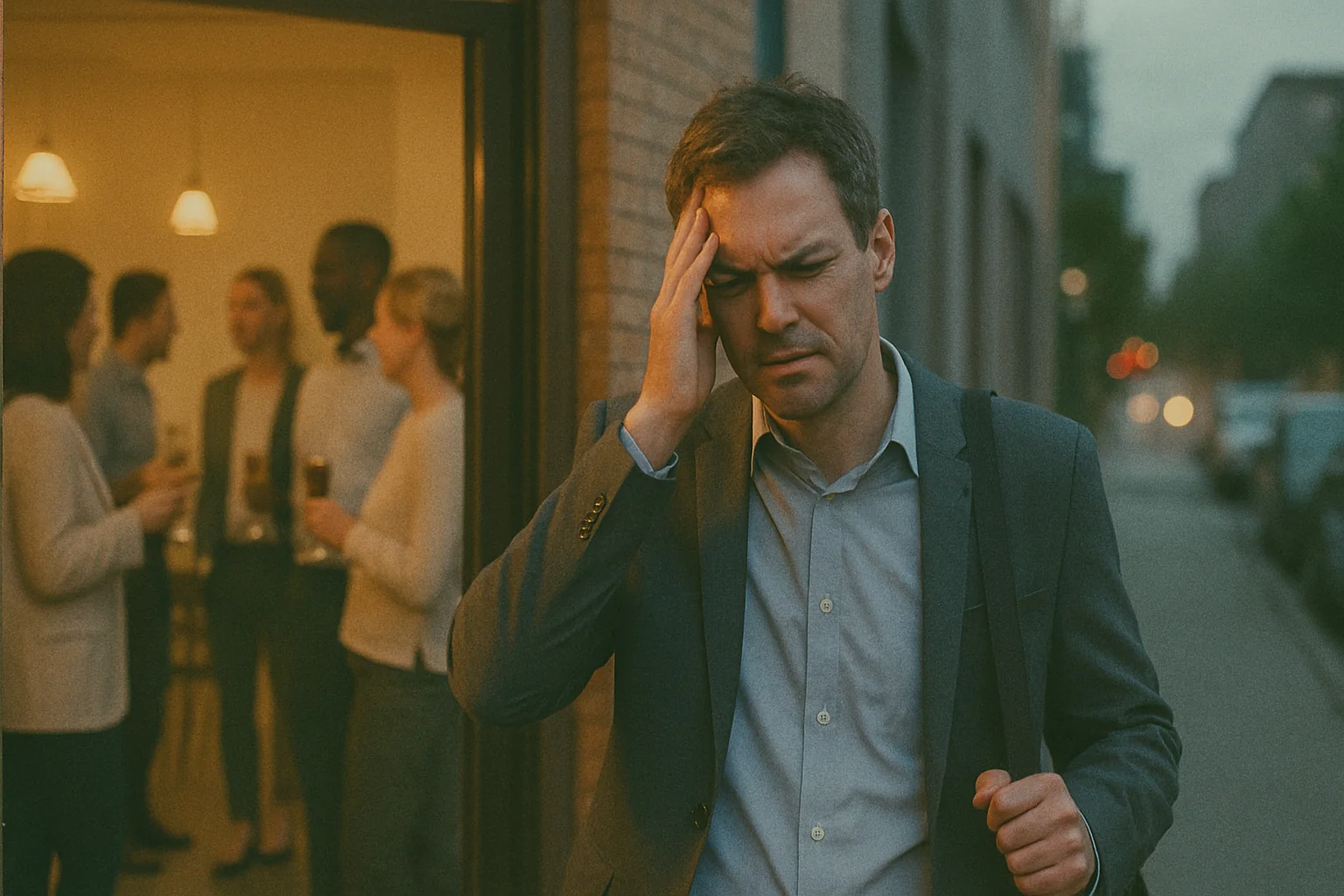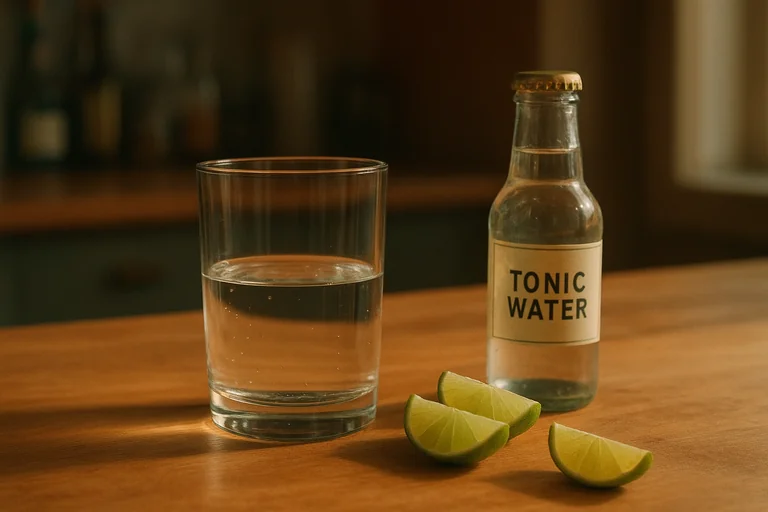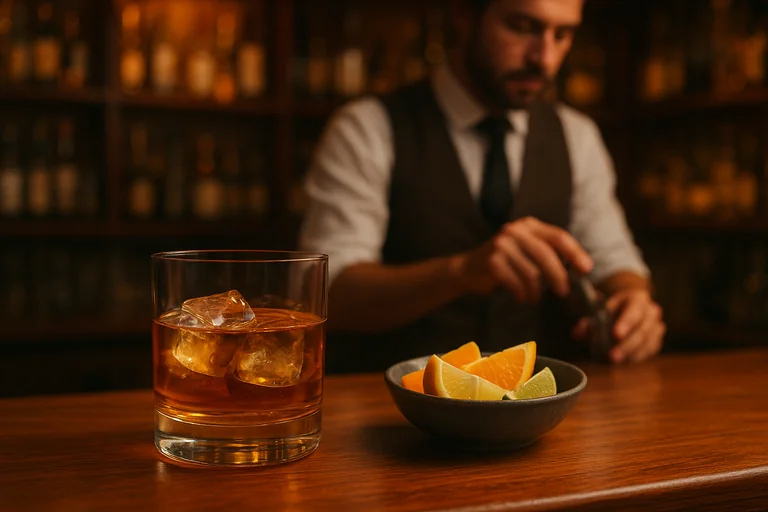A 2 minute assessment to get a personalized mental health or alcohol recovery plan.
Think you'll be sober by morning after a night of drinking? Research shows alcohol stays in your system much longer than most people realize.
What You'll Discover:
- Why the "one drink per hour" rule is dangerously misleading and often wrong.
- The scientific process your liver uses to eliminate alcohol and why it can't be rushed.
- How long you're actually impaired after drinking, even when you feel fine.
- What factors make alcohol stay in your system longer than expected.
You've probably been there before: it's late at night, you've had a few drinks, and you're wondering when you'll actually be sober again. Maybe you have work in the morning, need to drive somewhere, or simply want to know when the foggy feeling will lift. The question "how long does drunk last?" seems simple enough, but the answer is more complex than most people realize.
Or at least, that's what you think. In actuality, your body is processing alcohol at a fixed rate that can't be sped up, no matter what tricks you try. A night of heavy drinking on Friday could leave you legally impaired well into Saturday afternoon. After all, feeling better doesn't mean you're actually sober. But in actuality, more recent research into alcohol metabolism has shown that impairment lasts far longer than the obvious signs of intoxication.
It may be time to reconsider your assumptions about alcohol elimination if avoiding a DUI or showing up to work still impaired is a priority.
Why Your Liver Works Like a Bottleneck That Can't Be Rushed
Don't let anyone fool you into thinking coffee, cold showers, or exercise will sober you up faster. The process of alcohol elimination happens at a fixed rate in your liver, and nothing you do can speed it up.
Many researchers, doctors and toxicologists will tell you that your liver is the only organ that really matters for getting sober - it handles 90% of alcohol elimination while only 10% leaves through breath, sweat, and urine. Even if you're sweating profusely or breathing deeply, your liver is doing the real work. It's particularly frustrating for people who need to be sober quickly. For example, someone who drank too much at a work event and has an important meeting the next morning.
Now that you have a better idea that sobriety can't be rushed, let's delve further into the science of how your body actually processes alcohol, some of which may be very surprising.
Your Body Eliminates Alcohol at Exactly 0.015% BAC Per Hour, No Matter What
The undeniable truth is that alcohol elimination follows a strict timeline. There's the enzyme that breaks down alcohol, as well as the fixed rate at which it works.
The Enzyme That Controls Everything
This is one of the major factors people don't understand about getting sober. Your liver produces an enzyme called alcohol dehydrogenase that breaks down alcohol. The University of Toledo explains that alcohol dehydrogenase is the enzyme responsible for metabolizing alcohol. Research has shown this enzyme:
- Works at a constant rate regardless of body size
- Can't be sped up by any external factors
- Processes alcohol at 0.015% BAC per hour
- Functions slower in women who have 40% less of it
- Gets less efficient as you age
The Math That Shows How Long You're Really Drunk
Although people think they understand the "one drink per hour" rule, the real math is more concerning. The Cleveland Clinic notes that one drink per hour is processed by your liver. But here's where it gets complicated - most people don't drink at that pace. The elimination rate means:
- 0.08% BAC (legal limit) = 5+ hours to full sobriety
- 0.15% BAC (severe impairment) = 10 hours to full sobriety
- 0.20% BAC (blackout level) = 13+ hours to full sobriety
- 0.25% BAC (dangerous) = 17 hours to full sobriety
The Delayed Peak That Catches People Off Guard
After you stop drinking, your BAC continues rising for 30-90 minutes. That's because alcohol in your stomach is still being absorbed while your liver tries to catch up.
This delayed peak means:
- Your highest BAC occurs after you stop drinking
- You get drunker even when not drinking anymore
- Morning BAC can be higher than expected
- Sleep doesn't speed up the process
Worried you might still be drunk the next morning? The math shows it's more common than people realize.
Why Women Process Alcohol Differently
Many people are surprised to find that gender significantly affects alcohol elimination. It's now believed that women face unique challenges because:
- 40% less alcohol dehydrogenase enzyme in the liver
- Higher body fat percentage affects distribution
- Hormonal changes impact metabolism
- Same elimination rate but higher peak BAC
The Accumulation Problem Nobody Talks About
Another serious issue with drinking is the accumulation effect. Even if you space out your drinks, if you're drinking faster than one per hour:
- Your BAC rises continuously
- Each drink adds to unprocessed alcohol
- The elimination timeline extends dramatically
- You fall further "behind" in processing
The issue of accumulation is another reason why people underestimate impairment duration. There are far too many cases of morning DUIs from people who stopped drinking hours earlier, but the accumulated alcohol hadn't been eliminated.
The Other Undeniable Problem - You Feel Fine While Still Being Impaired
The other major risk with alcohol elimination is the gap between feeling okay and actually being sober. You may feel capable of driving at 8 AM, but if you had a BAC of 0.20% at 2 AM, you're still at 0.11% - well above the legal limit.
Not all impairment is obvious, but it significantly affects your abilities compared to being fully sober. Very few people realize they're still impaired 10-12 hours after drinking. More often they feel tired but otherwise normal.
What might be most troubling is that cognitive impairment persists even at low BAC levels. Other issues like slowed reaction time and poor judgment continue long after obvious drunkenness fades.
A Real Timeline Showing 14 Hours of Alcohol Elimination
Now with actual data from toxicology research, we can see exactly how long drunk really lasts. But more importantly, this timeline reveals the dangerous morning-after period.
What's most concerning about this example is how normal activities become risky. The University of Toledo provides a detailed timeline showing someone who went to bed at 2 AM with 0.20% BAC. Essentially, they were severely drunk when they stopped drinking. That is why the next day looked like this:
This is obvious when you see the hour-by-hour breakdown, but most people never calculate it. The timeline showed at 7 AM (5 hours later) BAC was still 0.125% - way over the legal limit. The person was functional enough to get up but still seriously impaired. It wasn't until 10 AM that they dropped below 0.08%.
The takeaway is that if you're drinking heavily at night, you're probably still drunk well into the next day.
The good news is that understanding these timelines helps you plan better and avoid dangerous situations.
Why Coffee, Cold Showers, and Other Tricks Don't Actually Work
Clearly, people want to sober up faster. But understanding why common remedies fail reveals the biological reality.
In addition to being ineffective, some "sobering" methods actually make things worse. Coffee might make you feel alert, but you're just an alert drunk person. Cold showers wake you up without changing your BAC. Exercise while drunk increases dehydration and injury risk.
Let's look at what actually happens. Imagine you wake up after drinking, have strong coffee, take a cold shower, and feel ready to drive. Your brain might feel clearer, but your BAC hasn't changed at all. You've just masked the feeling of impairment while remaining legally and functionally drunk.
Another key consideration is that only time eliminates alcohol. Whether you're sleeping, exercising, or drinking water, your liver processes alcohol at the same 0.015% per hour. The rate never changes.
NEED TO KNOW: The only thing that makes you sober is time. Every other method is either useless or dangerous because it makes you feel less impaired while your BAC remains elevated.
Factors That Make Drunk Last Even Longer Than Expected
If you're wondering why sometimes you feel drunk longer than other times, several factors affect how high your BAC gets and how you experience impairment.
Body weight and composition play a huge role. Smaller people reach higher BAC levels from the same drinks, meaning longer elimination times. People with more body fat also experience different alcohol distribution, often leading to higher peak BAC.
Food consumption before and during drinking significantly impacts absorption. Drinking on an empty stomach causes rapid absorption and higher peak BAC. While food doesn't speed elimination, it can prevent dangerously high BAC levels that take forever to eliminate.
Age becomes increasingly important over time. Older adults have less efficient liver function and may take longer to eliminate alcohol. They also have less body water, leading to higher BAC from the same amount of alcohol.
Medications can dangerously extend impairment. The University of Toledo specifically warns that Tylenol and alcohol create a "bottleneck" in the liver, slowing alcohol metabolism while damaging liver cells.
But here's what's critical to understand: genetics also matter. Some people naturally produce less alcohol dehydrogenase enzyme, meaning they eliminate alcohol slower than average. You might be one of these people without knowing it.
Planning Your Drinking When You Know How Long It Really Lasts
The science of alcohol elimination should fundamentally change how you approach drinking situations. If you understand that heavy drinking Friday night means impairment into Saturday afternoon, you can plan accordingly.
Transportation planning becomes essential. That morning drive after a night out? You might still be legally drunk. Many people get DUIs the morning after drinking because they assumed they'd slept it off.
Work responsibilities need serious consideration. Important meetings, operating machinery, or any task requiring full cognitive function shouldn't happen within 12-14 hours of heavy drinking. Your judgment and reaction time are still impaired even if you feel functional.
Understanding your personal timeline means honest assessment of your drinking patterns. If you regularly drink to 0.15% BAC or higher, you're looking at 10+ hours before full sobriety. If you're female, older, or on medications, add extra time.
The gap between feeling fine and being sober is particularly dangerous. You might feel capable at 0.05% BAC, but you're still impaired compared to 0.00%. This partial impairment affects driving, work performance, and decision-making.
Concerned about how long alcohol stays in your system?
If you find yourself regularly dealing with extended impairment periods, if you're worried about morning-after driving, or if you want better control over your drinking, support is available. Choose Your Horizon offers 100% online, confidential access to Naltrexone treatments that can help you reduce consumption and avoid these dangerous extended impairment periods.
Interested in learning more about controlling your alcohol consumption? Take the online Alcohol Use Assessment to find out if medication-assisted treatment could help you drink less and avoid the long, risky elimination periods that come with heavy drinking.




